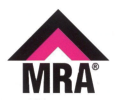Havirov¶
Video – Savings – Service – Cost-Benefit – Exploitation – Partners
The BECA pilot site in the Czech Republic is located in Havirov, a city with 78,713 inhabitants (number 1.1. 2013) founded in 1955, in the north-eastern part of the country. The first pilot building for the BECA project is situated in J.Jabůrkové Street in the city district of Mesto. It was selected as a typical multi-residential building from the municipal housing stock. This building was constructed in 1962 according to a national standard known as T02B and it was refurbished in 2009. It has altogether 36 rental apartments with 73 inhabitants. The second pilot building is located in Uzavřená Street at a distance of 180 m from the first building and is nearly identical. The second building has the same parameters as the first building (the same typology, number of apartments and has also undergone refurbishment).
The buildings were selected as they are located in an attractive downtown area with long-term occupants, most of whom use the internet on a daily basis. The first building has a total surface of about 1,761 m² and the second building of 1,780 m². Tenants in the pilot site are mostly Czechs with medium/low education background. The Havirov team in BECA project has implemented innovative Energy Decision Support and Awareness Service (edss) for tenants.
Video¶
Savings¶
For more details visit the eeMeasure tool and the BECA deliverable D7.2 also covering qualitative surveys.
Service¶
edss¶
Tenants have received access to the web application where they can follow their current consumption of water and heating energy in graphical and numerical form. They can select various time periods of visualisation of consumption data. The heating consumption is indirectly measured with units measuring temperatures and the total consumption in the house distributed across dwellings according to temperature. Tenants continued to pay on the basis of m² of their flat but edss should work as a motivation to save energy.
Value propositions¶
The BECA solution provides tenants with the possibility to continuously follow their water and heating energy consumption, so that they are able to influence it over time. The users can also compare their consumption behaviour with previous periods in time. Before using BECA, tenants received only paper bills once a year (in April). Competitors use heat cost allocators that measure heat consumed on radiators, while the degree day method used in the BECA solution also reflects heat transfers among individual apartments. BECA makes tenants aware of their energy consumption while providing feedback and automatically generated tips for saving. The solution allows the social housing provider to monitor and detect malfunctions of metering equipments as well as any “tampering issues”. Also, through the BECA service, the housing provider can check in real time for any potential anomalies in the energy use of apartments.
Cost-Benefit¶
The path for total socio-economic return is almost steadily increasing and crosses the point of return after around five years. The baseline scenario (Do-Nothing) is rather optimistic given only implementation cost for (cheap) heat cost allocators have been considered and no operation cost included (which would resemble a steeper path for BECA). As the business model(s) of competitors in the newly developing measurement market is not fully known, the cost-benefit analysis has been performed cautiously. The stakeholder graphs show: Tenants only have to expect losses during the implementation phase while the first replacement (assuming Tenants to be the payers once more) will have already paid for itself. The benefit path for Social Housing follows the cost curve and total socio-economic return is heavily influenced by changes in, either, cost or benefits. Since the total revenue stream for Social Housing is low, however, risk (and opportunity) are not endangering the companies’ business model in either case.
Exploitation¶
The solution already has been installed in several houses (condominiums, housing co-operatives) in Prague. The system can be implemented in any multifamily house. MRA has already collected information in apartments which have access to the internet. Refurbishment measures will be combined with the service in order to assist tenants in achieving the saving potential. In the coming three years this should be the case for 20 buildings (720 dwellings) resembling 1,500 additional users. For the whole of Czech Republic, the law providing obligation of metering heating consumption per flat has been approved. Further regulation allowing metering with degree-day method is anticipated which will make the cost-efficient BECA system a prime candidate for the entire housing stock.
Partners¶
Mestska Realitni Agentura SRO - MRA is a municipal real estate agency, founded on 1st January 1995 for the management and maintenance of the municipal housing stock. It is 100% owned by the Municipality of the city of Havirov. On the basis of a mandate contract MRA manages the municipal housing stock consisting of around 7767 apartments (in about 200 houses), 284 non-residential spaces (shops, offices), 13 ateliers, 67 garages and 21 individual objects (including 6 medical centres).
STÚ-K is a private consulting involved in national and international projects focused on housing, renovation of large panel buildings, energy efficiency, repairs of reinforced concrete structures, recycling of building materials and use of micro fillers in concrete mixtures and mortars. STÚ-K has been involved in several EU projects with special focus on EIE projects.






